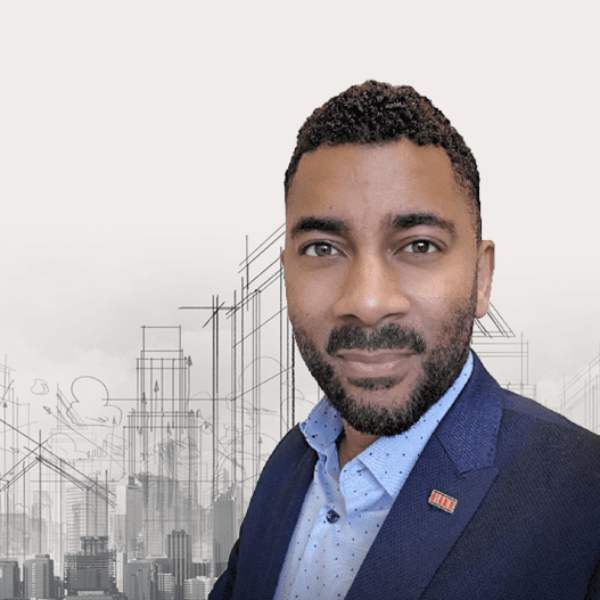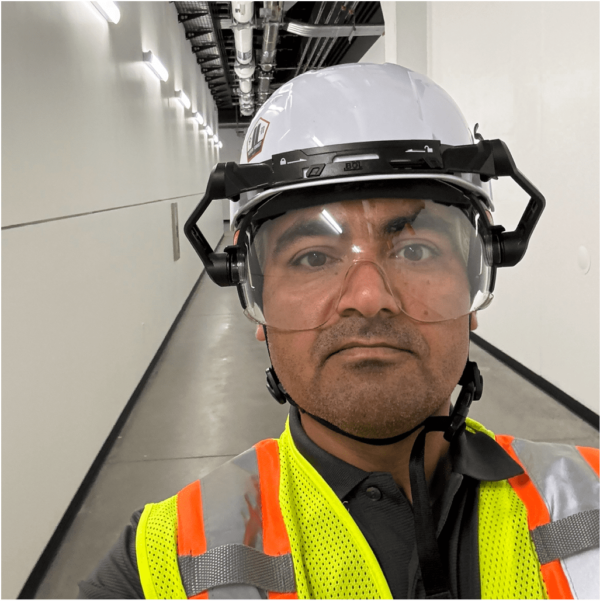
October 22, 2024 | Articles
Walking the Talk: New Vice President, Rail and Transit Gavin Martin

Nearly one-third of Hill International’s employees are degreed, registered, or specialized engineers, and Hill teams work with engineers on projects ranging from new K-12 schools in rural Washington State to record-setting skyscrapers in Abu Dhabi. This week, Hill celebrates our engineering co-workers and colleagues through the National Society of Professional Engineers’ (NSPE) 70th annual “Engineers Week,” or EWeek.
EWeek, according to the NSPE, is intended to “ensure a diverse and well-educated engineering workforce by increasing understanding of and interest in engineering and technology careers.” NPSE adds that since the event’s launch in 1951, “EWeek” has grown to include the participation of more than 50 corporations and government agencies, all dedicated to raising public awareness of the work engineers do and their contributions to our quality of life both in the built environment and beyond.
Many Hill engineers embody the ideals of Engineers Week and demonstrate daily the value of an engineering skillset and approach. This is especially true of the Washington, DC, office’s Niqui Clark, PE. Ms. Clark, a registered Professional Engineer in the State of Maryland, has more than 12 years of experience in planning, design, construction management, and project management, most recently as Project Manager/Resident Engineer for Hill’s work on multiple projects for the Maryland Aviation Administration at Baltimore Washington International (BWI) Airport. Ms. Clark, working from home like most of us, recently shared her insights on being an engineer, how her engineering skills support her project management work, and the future of engineering within the construction industry.
How does being a Professional Engineer influence your Project Management work?
Being a PE definitely makes managing work more fluid. It means I understand the designs and the design perspective, for example, and then it also helps to marry this perspective with the owner’s requirements and my own work as a construction manager. Also, my background is in civil engineering and much of the work we are doing at BWI is civil, so it gives me an advantage to see that point of view as well. Really I can’t think of a way being a PE doesn’t influence my management style.
Where is engineering headed, in your opinion?
I think we’re going to see a better blend among disciplines and tasks. We’ve been waiting for years now for technology to evolve to allow all the different disciplines to work together more smoothly, and we’re starting to see that now. BIM, dashboards, and all the other tools coming into the market enable contractors to see things better from the design side, and designers are seeing projects more clearly from the construction side as well. That frustration between design and construction is starting to ease, at least, and I think that trend is going to continue as the new tools available are more commonly used.
What advice would you give to a young engineer?
Start with a smaller company, like I did, and get out in the field and see what’s being built. Beginning where I did gave me the chance to take on a lot of roles and fill in the gaps. Hill is a larger company, certainly, but we do operate in a similar way where we do a little bit of everything and so every team members has to have basic grasp of everything happening on their project. Getting out into the field is really important—seeing a project in reality is very different from seeing it on paper. For me, being exposed to as much as I could, from designing the project to being hands-on during construction, really helped my career. Even for things I knew I didn’t want to focus on, having experienced them has been invaluable.
Are there any challenges being an engineer in construction management? Any specific rewards?
Not being able to make all the decisions is a challenge. As a construction manager, I know my job is to execute the job as designed. Sometimes I see a design and know I would have made a different choice, but we work through it and in the end the project benefits. As for what’s rewarding, the best thing is accomplishing a contract on time and within budget. It’s like putting together a project at home where you plan it and execute it. As a PM, I see the plans, and the client is counting on me to make it all work. It gives me a real sense of pride when the client is pleased with a project.
How has the pandemic impacted how you work?
Not being as hands-on, not being physically on-site, is tough. Also, I have three young children at home so that’s a daily challenge. We do have some team members on site at BWI, but it’s important to me that our client knows we are still there even if we can’t all be present. BWI has also been great about keeping their projects going, and, in the end, this is what engineers do: we solve problems. Everyday is a different challenge, technical difficulties, all the rest, but we work through it and the work is still getting done.
What kind of project do you enjoy the most?
I was involved with public works projects when I first graduated, and I liked that, but I like working with airports more because projects move so quickly. You go from planning to design to construction so fast at an airport. Sometimes, especially in the private sector, you spend so much time designing a project and it might not even get off the ground. But at airports that can’t happen. I’m a civil engineer, too, so I like flat construction the best—runways, roads. When you see 30 or 40 trucks out there at once doing a night pour, it’s pretty incredible.
What would you say to an engineer considering joining Hill?
Hill’s a great place to be because there are so many different opportunities within the company. You can grow within your group, within your region, within your market. If you have the drive there will be a place for you. Hill won’t put you in a corner and assume you’ll be happy doing the same thing every day for the next 10 years. I know some people like that about their jobs, but I’m looking to learn and grow with a company, and Hill offers those chances for me.
Share

October 22, 2024 | Articles
Walking the Talk: New Vice President, Rail and Transit Gavin Martin

October 18, 2024 | Articles
Future-Proofing Projects: Janakiram VVS Talks India’s Digital Transformation

October 14, 2024 | Articles
Weathering the Storms Part 3: Resiliency Support for Investor-Owned Utilities

October 12, 2024 | Articles
Growing Greener Healthcare: The SNF Global Health Initiative

October 9, 2024 | Articles

October 7, 2024 | Articles
Weathering the Storms Part 2: Leveraging Public Funding for Utility Resiliency

September 30, 2024 | Articles

September 23, 2024 | Articles
Independent Safety Assessments for Rail Projects: Weighing Benefits and Challenges

September 19, 2024 | Articles
Hill Shares Industry Insights to Help Ukrainian Contractors Rebuild

September 19, 2024 | Articles